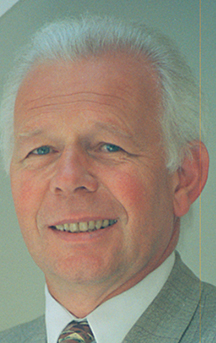We are again just weeks away from another presidential election. An election that won’t be decided by a plurality of the popular vote, but by what even our Supreme Court has referred to as the “anachronism of the Electoral College.”
A perpetual majority of voters continue to believe that we ought to adopt a system whereby the presidential candidate supported by the most citizens on Election Day ought to be declared the winner. However, with the exception of President Biden’s victory in the most recent contest—accumulating seven million more popular votes than his opponent—multiple election outcomes produced winners who lacked a popular mandate. In the election of 2000, George W. Bush managed to barely compile the mandatory 271 electoral votes necessary to win the election after being declared the controversial victor in Florida, winning that state by 537 votes. His opponent, Al Gore, won the national vote by 543,000. In the 2016 election, former president Donald Trump won the electoral college by a count of 306 against 232 for Hillary Clinton, even though the latter amassed almost 3 million more votes nationally.
These outcomes have persistently regenerated a popular outcry chastising our electoral college system, questioning why we would not use the popular vote tally to choose our president. As recent as a few weeks ago, a Pew research poll indicated that more than six-in-ten Americans (63%) would prefer to see the winner of the presidential election be the person who wins the most votes nationally. Roughly a third (35%) favored retaining the anachronistic system we have employed for the past 200 years.
Hence, the questions remain: Why do we have an Electoral College? Why don’t we change the system if that appears to be the popular preference? And what are the arguments supporting continuing with our current system?
Our founders feared factions and worried that voters wouldn’t make informed decisions. They were in a quandary. They did not want to tell the states how to conduct their elections. Many feared that the states with the largest populations would essentially end up choosing the president. The Electoral College was a compromise.
The compromise adopted at the Constitutional Convention in Philadelphia in 1787 allowed the popular election of the president, but on a state-by-state basis. Each state’s citizen would vote for president. The winner would take all the electoral votes allocated to that state, based on the combined number of seats that particular state had in the House and Senate. The tricky part was how to account for all the slaves when determining a state’s total population. Even though white slaveholders generally did not intend to represent their slave populations, their numbers helped determine the state’s number of seats in the House of Representatives. The compromise the convention came up with was to count only three out of every five slaves as people, giving the Southern states a third more seats in Congress.
The Constitution adopted during the convention included this three-fifths compromise, which was not superseded until the passage of the Fourteenth Amendment in 1968. Section 2 of this Amendment gave former slaves equal protection and voting rights. It specified equality for male slaves. Female slaves and all women were excluded.
Today’s supporters of the Electoral College argue that we live in a constitutional republic rather than in a democracy. They maintain that the process is integral to our federalist, state-focused philosophy, and serves as a firewall against fraud. It prevents systematic fraud by diffusing fraudulent voting across multiple states. Until the trumped up charges of the last four years, the suggestion has been that a small number of fraudulent votes would have no impact on the outcome of a presidential election. They also submit that the College encourages a national campaign, because the power of small states with at least three electoral votes can be decisive in close presidential elections.
Some white supremacist leaders also spread the belief that with a popular vote white people would have less influence. California, Texas and Florida would do the electing. A shocking expression resulting from this creed can be found in a 1957 article published in National Review, authored by William F. Buckley, titled: “Why the South must Prevail.” It reads: White Americans are “entitled to take such measures as are necessary to prevail, politically and culturally,” anywhere they are outnumbered, because they are part of “the advanced race.”
Popular vote supporters predictably suggest that our votes would count the same wherever they are cast. Whoever gets the most should win. A national popular vote would eliminate the “battleground state,” a key feature of post-convention campaigning, leaving most Americans alienated from the decisive phase of presidential campaigns. One of the arguments against a popular vote system is that a candidate could actually win with less than 50% of the vote. If you had more than two challengers, somebody could presumably win with 30% of the vote, which could be a ticket to an extremist candidate.
Either way, changing the system requires more than popular desire to do so. It would involve changing our Constitution. An amendment would need a two-thirds majority in the House and the Senate, and support from three-fourth of our 50 states. Given our political climate, agreement in support of significant systemic change will be unlikely for the foreseeable future.











Trump 2024
American Latinos for Trump 2024!!
Articles like this make he printed version of this rag perfect for bird cage liner
Theo here is the reality my friend
The party is over for the democrats. Everyone is a Kamala voter until the curtain closes in the voting booth. With that said, Trump will be your next president. Americans will not soon forget the deplorable state of this country and economy under Biden Harris. Being boldface lied to and deceived. Not even California or New York will save Harris Waltz.
The fat lady will sing on November 6th and the rest of the country will sing with her. The party is over now the grown up will run the USA and life will resume under normal conditions and we will move forward. Keep writing articles it’s hilarious to read them! 😝
Apparently the libs love the electoral college when they win, but hate it when they lose.
NEWS ALERT: Mr. Trump won with the most popular votes in addition to electoral votes.
GET OVER IT!